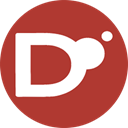Unlocking Your Options: The Best Groovy Alternatives for Modern Development
Groovy is an agile and dynamic language for the Java Virtual Machine (JVM), known for its concise syntax and seamless integration with existing Java code. However, like any technology, it might not be the perfect fit for every project or team. Developers often seek Groovy alternatives for various reasons, including specific project requirements, performance considerations, or simply a preference for different language paradigms. This article explores top programming languages that offer compelling solutions for developers looking beyond Groovy.
Top Groovy Alternatives
Whether you're looking for greater versatility, different ecosystem support, or specific language features, these alternatives provide robust options for your next development endeavor.

Python
Python is an interpreted, interactive, object-oriented, and extensible programming language that offers an extraordinary combination of clarity and versatility. It's a fantastic Groovy alternative, being free and open-source, and running across a multitude of platforms including Mac, Windows, Linux, and BSD. Key features that make Python stand out include its high-level nature, object-oriented capabilities, dynamic typing, and efficient garbage collection.

JavaScript
JavaScript (JS) is a lightweight, interpreted, object-oriented language most known as the scripting language for Web development. As a free and open-source option, it's a powerful Groovy alternative, especially for web-centric applications, running on Mac, Windows, Linux, Web, Android, and more. Its features include asynchronous programming, dynamic typing, and prototype-based inheritance, making it highly versatile for modern web applications.

Java
Java is a general-purpose, concurrent, class-based, object-oriented programming language specifically designed for minimal implementation dependencies. It's a robust Groovy alternative, being free and open-source (though some personal use versions are also available), and offering extensive cross-platform compatibility across Mac, Windows, Linux, Web, Android, and various mobile devices. Its core strengths lie in its object-oriented nature, cross-platform capabilities, and robust garbage collection.

Ruby
Ruby is a dynamic, reflective, general-purpose object-oriented programming language that provides an excellent Groovy alternative. It's free, open-source, and available on Mac, Windows, Linux, BSD, and Haiku. Key features include its object-oriented paradigm, dynamic typing, and a powerful package manager, making it a favorite for web development frameworks like Ruby on Rails.

C#
C# is a multi-paradigm programming language encompassing strong typing, imperative, declarative, functional, generic, and object-oriented paradigms. As a free and open-source language available on Mac, Windows, Linux, and BSD, C# is a compelling Groovy alternative, particularly for enterprise applications and game development. Its compiled nature and strong object-oriented features are significant advantages.

Lua
Lua is a powerful, fast, lightweight, and embeddable scripting language. It's an excellent open-source and free Groovy alternative, especially for game development and embedded systems, available on Mac, Windows, Linux, Android, iPhone, and various other platforms. Its strengths lie in its simple procedural syntax and powerful data description constructs, making it ideal for scripting and configuration.

Dart
Dart is a web programming language developed by Google, an open-source and free Groovy alternative suitable for building cross-platform mobile, desktop, and web applications. It runs on Mac, Windows, Linux, and Web, and is particularly popular for its use with the Flutter framework, enabling efficient UI development.

D (Programming Language)
D is a language with C-like syntax and static typing, known for pragmatically combining efficiency, control, and modeling power with safety and programmer productivity. It's a free and open-source Groovy alternative available on Mac, Windows, Linux, and BSD. Its multi-paradigm nature, including functional and object-oriented features, makes it a versatile choice.

Nim (programming language)
Nim is a statically typed, imperative programming language with a powerful macro system, offering ultimate power without compromises on runtime. It's a free and open-source Groovy alternative, available on Mac, Windows, Linux, and BSD. Its key features include being a compiled language, cross-platform compatibility, and an object-oriented approach.

Scala
Scala is a modern multi-paradigm programming language based on the Java Virtual Machine (JVM), designed to express common programming patterns concisely and elegantly. As a free and open-source Groovy alternative, it runs on Mac, Windows, Linux, and BSD. Its strengths lie in its compiled nature, functional programming capabilities, and strong object-oriented features, making it a powerful choice for complex systems.
Choosing the right Groovy alternative depends heavily on your specific project needs, team expertise, and desired ecosystem. Each language listed offers unique advantages, from broad platform support and open-source flexibility to distinct feature sets like dynamic typing, robust compilation, or web-centric capabilities. We encourage you to explore these options further to find the best fit for your development journey.